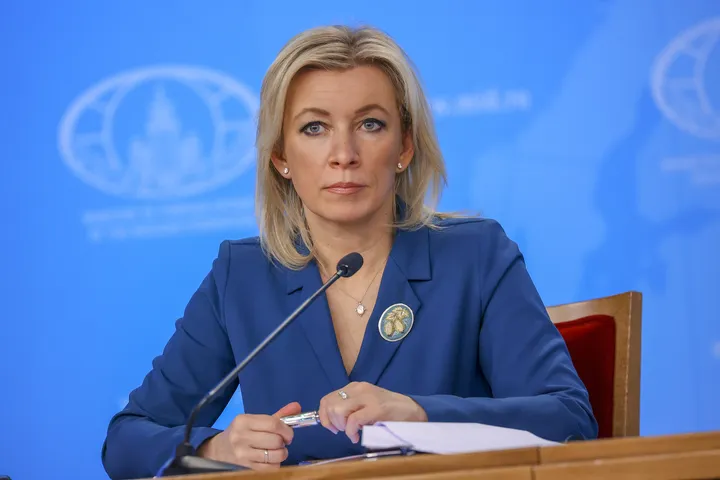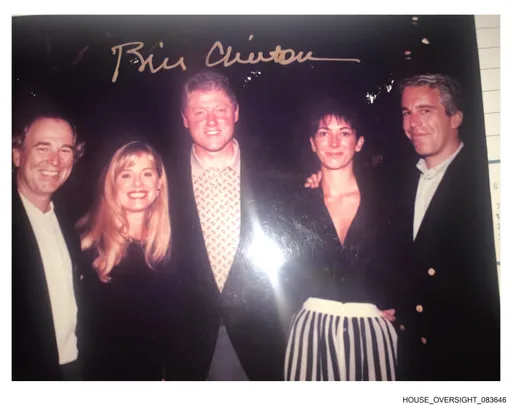On April 14 2022, Elon Musk made an unsolicited offer to buy Twitter, now named X, that was later accepted for $44 billion on April 25.
After, there was “a notable and surprising surge in follower counts for Republican politicians on the platform," explains Veli Safak, Assistant Teaching Professor, Economics at Carnegie Mellon University in Qatar.
Safak’s joint-research with Aniish Sridhar revealed Republican accounts gained 319,401 followers, while Democrat accounts lost 178,583 followers on April 26.
As the gap widened over the following days, he explains it led to the belief Twitter “had undisclosed private policies in its interactions with political accounts, raising questions about its neutrality.”
Musk’s motivations to acquire the platform also raised questions concerning how it would stand alongside his other prominent business interests like SpaceX, Tesla, NeuraLink, and Boring Company, explains Dawood Mamoon, a researcher at the World Economic Survey Expert Group.
In October after completing the acquisition, Safak says Musk shared a “trove of internal and confidential moderation and dissemination policies from Twitter,” among prominent journalists, in the so-called "Twitter files".
It allegedly exposed the platform's "use of secret shadow banning practices and revealed multiple instances of the Twitter moderation team being contacted by the Biden campaign and the FBI regarding political matters, including the Capitol attack and the New York Post's story about Hunter Biden, the son of the current US President,” explains Safak, adding Musk suggested Twitter acted “under orders from the government."
After the disclosure, he suggests X started to fulfil its commitment to being a neutral space that welcomes diverse viewpoints.
In May, Musk appeared to talk up the platform's potential to foster debate, writing “on X unlike the one-way street of broadcast, people are able to interact, critique and refute whatever is said," adding anything "misleading will get @CommunityNotes."
Tucker Carlson on X
A month later, Former Fox News Host Tucker Carlson's first show aired on X, following his removal from air after a costly defamation lawsuit over false claims of election fraud. Ahead of Carlson’s first episode, in a three minute monologue he claimed that news is a lie “of the stealthiest and most insidious kind." Facts, he said, are “withheld” on purpose alongside proportion and perspective - leaving the viewer “manipulated."
“The rule of what you can’t say defines everything. It’s filthy really, and it’s utterly corrupting,” Tucker said. “You can’t have a free society if people are not allowed to say what they think is true. Speech is the fundamental prerequisite for democracy.”
Musk has said there was no deal signed by X and Carlson, who faces “the same rules & rewards of all content creators." Musk also touched upon how rewards relate to subscriptions and advertising revenue that was “coming soon,” and labelling it a “function of how many people subscribe and the advertising views associated with the content”.
Musk who previously described himself as “politically neutral,” explaining it means upsetting the far-right and far-left equally, said he hoped “many others, particularly from the left, also choose to be content creators on this platform.”
Daniel Russo, a researcher at the University of North Carolina-Chapel Hill also points to Musk’s pushback against ‘woke’ culture as the motivating factor behind his acquisition of X. Some reports have suggested he is pushing to combat the "woke mind virus," believing one of his own children had succumbed to it.
An economic tightrope
Yet beyond the varying perceptions of Musk, different analysts note challenges relating to making X practical in the long-term, particularly in light of the financial losses the platform has grappled with before Musk’s acquisition.
Citing Marketwatch, after the acquisition Russo believes Musk's political rhetoric drove away such advertising dollars. Revenues from the top 10 advertisers dropped almost 90 percent at one stage.
The fiscal situation alongside the difficulty to make X profitable prior to Musk, Russo argues “incentivised Musk to not only lay off thousands of X workers but also get more ‘creative’ in money-making activity.”
However, not all analysts appear to agree when it comes to making commercial decisions.
Experts like Mamoon view that Musk implemented necessary cost cutting measures to make X a viable business.
As Musk continues to oversee developments on X, in September he floated the idea of "a small monthly payment" to access the platform.
Put forward as the “antidote to the massive bot challenge all social media platforms face,” Hamza Mudassir, Fellow and Lecturer in Strategy and Policy at the Judge Business School at the University of Cambridge, describes bots as scripted accounts posting and spamming other accounts with comments and advertising, causing a “nuisance” for humans using social media platforms.
For those fighting against bots, he likens it to an “arms race” as algorithmic interventions by a platform to detect and block them are met with rapid innovation by Bot makers to outwit them.
Musk’s potential subscription fee comes with the expectation Bot makers would “buckle” under the pressure of user costs and reduce their scale. However, Mudassir does not consider it a “workable strategy,” as a social mediaplatform’s value is primarily driven by the number of users it gets and retains.
Some accounts within the so-called"FinTwit" already expressed their wish to shift their content to alternative platforms like YouTube in response to such adjustments, says Safak.
“Transforming the platform into a hub for various perspectives isn't just a moral imperative but also a shrewd business decision. With greater inclusivity, X's network effects will expand, resulting in increased advertising revenue,” he argues.
"Network effects" mean the platform gains more users, becoming more valuable while more content is generated thanks to interactions by and between users, explains Mudassir. He says it keeps users engaged on the platform, allowing for "better monetisation in the form of advertising and means."
Tucker Carlson’s strategic value
"While it is true that having controversial figures such as Tucker Carlson on Twitter attracts more users every month (and likely has a positive impact on profitability), I am unsure if charging everyone a fee is going to help the overall business, as it is likely to cause a steep drop of users, both bots and humans, unravelling hard built network effects," Mudassir tells TRT World.
In the last decade the streaming business landscape has experienced significant changes, in May presidential candidate Ron DeSantis launched his campaign on X, underscoring the platform’s evolving role in politics, explains Safak
"While excessive politicisation could potentially harm X's business, this event demonstrated that with improvements to its live streaming features, X could become a major player in this domain. Elon Musk's support for figures like Tucker Carlson and Russell Brand appears to be part of this strategic effort. Tucker Carlson's initial show on Twitter garnered an impressive 121.4 million views." Safak tells TRT World.
However, Carlson's first episode on X drew some backlash amid reports of unfounded claims regarding Ukraine's destruction of a large-scale dam in Russian-occupied territory, causing massive flooding.
Musk and X
According to Russo, the convergence of Musk’s ideological and financial motivations can best be captured by the fact that a significant portion of the users (or their tweets) being monetised come from the far-right.
Mamoon believes Musk’s long term objective is to potentially integrate X with Artificial Generative Intelligence (AGI), suggesting there are wider considerations, particularly regarding why legacy media has dismissed alternative possibilities beyond monetising Twitter.
Musk has over 158 million followers and is the most highly followed account on X, typically posting on a range of topics such as politics and social matters, despite some critics accusing him of misinformation.
Ahead of what is expected to be a prominent issue in the US presidential elections 2024, in September Musk accompanied Republican House of Representatives Member Tony Gonzales to the US-Mexico border, live streaming the situation amid the heightened media reporting concerning the migrant and refugee crossings.
As such, Mamoon says it is “plausible” that another potential motive for Musk to purchase the platform is “to influence American Politics,” referencing the impact Facebook and Twitter have had in the past.
Nevertheless the biggest issue to reflect on Mudassir suggests, is the “power of big tech platforms, on whom a majority of us depend to run our daily lives, build and enhance our relationships and earn a livelihood. “
If these platforms can unilaterally implement policy decisions regarding whom to favour and whom not to, without much recourse, he suggests “we have a tricky problem on our hands”.
Mudassir notes policy-makers in governments and think tanks have been grappling with this issue for years, describing “platform policies” as “like a moving target” due to “new emergent situations that require a rethink”.
As X continues to evolve, Safak underscores the important issue of text data that since December has grown amid recent developments relating to the commercialisation of large language models.
Before Musk’s involvement on X, he explains there was a “relatively straightforward process” at no cost for researchers and businesses to access all public tweets in the form of a dataset through a user-friendly and well-established Application Programming Interface (API).
Yet Safak notes Musk introduced changes that have substantially restricted free access.
He says retrieving 1,000,000 tweets per month now costs $5,000.
Safak adds, "as large language models continue to gain commercial traction, X has the potential to emerge as a prominent data supplier for numerous tech businesses, provided it adopts an appropriate pricing strategy. This shift underscores the growing importance of text data in the evolving landscape of data-driven technology,"
























